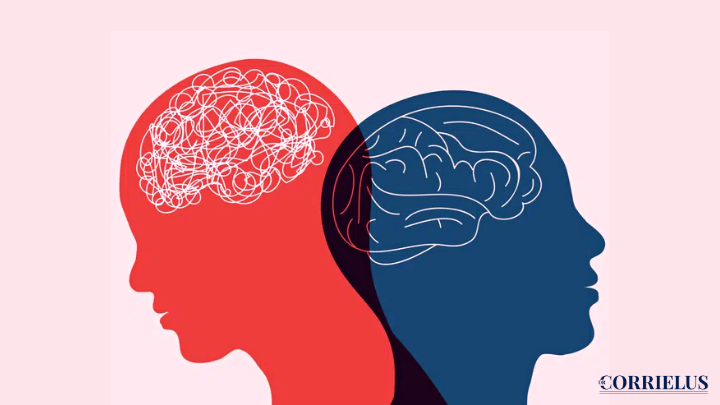A co-occurring disorder or dual diagnosis is when you have both a drug addiction problem and a mental health condition, such as depression, bipolar disorder, or anxiety. When you’re dealing with mental health issues, dealing with substance abuse, alcoholism, or drug addiction is significantly more difficult.
When you have co-occurring disorders, your capacity to perform at work or school, have a stable home life, cope with challenges in life, and form relationships may be hampered by both the mental health condition and the drug or alcohol addiction, each of which has its own distinct symptoms. The fact that the co-occurring illnesses also have an impact on one another complicates the problem further. Drug usage typically worsens when a mental health issue is left untreated.
The co-occurrence
Although co-occurring SUDs and other mental illnesses are frequent, this does not always imply that one caused the other. According to research, three explanations might help explain why SUDs and other mental diseases may coexist:
Both SUDs and other mental diseases can be influenced by common risk factors.
Since SUDs and other mental diseases can run in families, certain genes may provide a risk. Environmental triggers like stress or trauma can modify a person’s genetic makeup in ways that are handed down through generations and may aid in the emergence of mental or drug use disorders.
Substance use and SUDs might be impacted by mental illnesses.
According to studies, those who suffer from mental illnesses including anxiety, depression, or post-traumatic stress disorder (PTSD), may use drugs or alcohol as a form of self-medication.
The symptoms of mental diseases may be momentarily alleviated by some medications, but over time, they may become worse.
Furthermore, brain abnormalities in individuals with mental problems may intensify the pleasurable benefits of drugs, increasing the likelihood that they will continue using them.
Other mental problems can emerge as a result of substance use and SUDs.
Substance abuse may result in structural and functional changes to the brain that increase the risk of developing a mental disease.
Diagnosis and Cure
Generally, it is preferable to treat co-occurring mental illnesses and SUD jointly rather than alone. As a result, anyone seeking treatment for a SUD or other mental illnesses must have each disorder assessed by a healthcare professional.
The use of thorough evaluation tools by the provider can lessen the likelihood of a missed diagnosis and enable focused therapy because it might be difficult to make an accurate diagnosis owing to overlapping symptoms.
Psychological Therapies
Numerous behavioral treatments have been identified by research as promising for the treatment of people with co-occurring mental and drug use disorders. Medical professionals may recommend behavioral therapy alone or in conjunction with medications.
The following are a few instances of successful behavioral therapy for persons with SUDs and other co-occurring mental disorders:
Cognitive Behavioral Therapy (CBT):
By challenging illogical thinking and altering actions, CBT is a sort of talk therapy designed to assist people to learn how to deal with stressful situations.
Dialectical Behavioral Therapy (DBT):
DBT employs the ideas of acceptance and mindfulness, or paying attention to and being aware of one’s current circumstance and emotional condition. DBT also offers techniques that can help manage strong emotions, lessen suicidal thoughts, impulses, self-harm, and drug use, and enhance interpersonal connections.
Community-Based Assertive Therapy (ACT):
Treatment plans are tailored to the needs of the community in this type of community-based mental health care.
Treatment Facilities (TF):
TCs are a typical type of long-term residential therapy that emphasizes assisting patients in forming fresh, more positive ideals, attitudes, and behaviors.
Management of Emergencies (CM):
By providing incentives or rewards for desired actions, CM principles promote healthy behavior.
Medications
Effective drugs exist to treat opioid, alcohol, and nicotine addiction and to decrease the symptoms of these addictions. Multiple disorders may be treated with some medications.
A word from the doctor —
Recovery from co-occurring disorders does not happen overnight. Relapse is a common part of recovery. The ability to work through this difficult time together and regain control of your lives relies on continuing support for you and your loved one.
Schedule a consultation with Dr. Sanul Corrielus right away if you have questions about your heart health!



